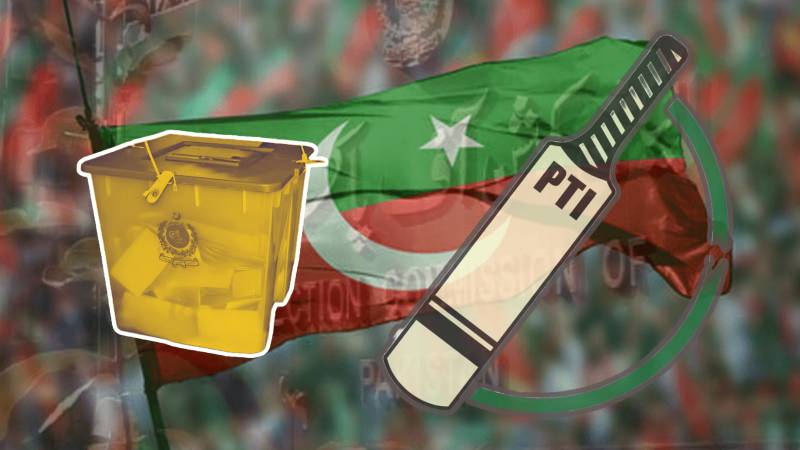Kashif Ahsan
In Pakistan’s vibrant, yet often tumultuous, parliamentary democracy, the awarding of tickets for National Assembly (NA) and Provincial Assembly (PA) seats stands as a crucial crossroads. This seemingly administrative act of choosing candidates holds immense weight, impacting the quality of governance, the efficacy of policymaking, and, ultimately, the very legitimacy of the democratic process. Therefore, prioritizing the selection of the most representative candidates becomes not just a strategic political move but a fundamental obligation towards strengthening the nation’s democratic fabric.
Central to the concept of parliamentary democracy is the principle of representation. The elected officials are meant to be the mirror reflecting the voices, concerns, and aspirations of their constituents. This necessitates awarding tickets to individuals who not only possess strong leadership qualities but also embody the diverse tapestry of Pakistani society. This includes, but is not limited to, ensuring equitable representation of women, religious minorities, ethnic groups, and marginalized communities. When these diverse voices find a seat at the decision-making table, policymaking becomes more nuanced and responsive to the needs of the broader population. Conversely, overlooking underrepresented groups fosters a disconnect between the legislature and the people it is meant to serve, eroding trust and legitimacy.
While ensuring representation is crucial, it cannot come at the expense of competence and integrity. The NA and PA require individuals with demonstrated expertise in their respective fields, be it economics, healthcare, education, or national security. Choosing candidates based solely on their ethnic or religious background without considering their qualifications risks jeopardizing the effectiveness of the legislature. Similarly, awarding tickets to individuals with a tarnished history of corruption or maladministration undermines the very spirit of democracy, replacing public service with personal enrichment. Therefore, a rigorous vetting process that prioritizes both merit and clean credentials is essential to ensure that elected officials uphold the trust placed in them.
The choice of candidates has a profound impact on the stability and resilience of Pakistan’s democracy. Selecting strong, principled individuals fosters a culture of political cooperation and consensus-building within the legislature. This, in turn, leads to the passage of well-considered legislation and effective oversight of the executive branch. Conversely, awarding tickets to those who prioritize personal agendas or engage in divisive rhetoric can exacerbate political polarization and gridlock. This weakens the legislature’s ability to address pressing national challenges and can even pave the way for undemocratic forces to exploit the instability.
Therefore, the selection of candidates for NA and PA seats in Pakistan transcends the realm of mere political manoeuvring. It demands a deliberate and responsible approach that prioritizes the principles of representation, competence, and integrity. By upholding these principles, Pakistan can navigate the crucial crossroads of ticket allocation and empower its democracy to truly serve the diverse needs of its people.
It is important to acknowledge that ensuring a perfectly representative and competent legislature is a complex and ongoing challenge. Pakistan’s evolving political landscape necessitates constant reflection and refinement of candidate selection processes. However, by embracing the principles outlined above and striving for continual improvement, Pakistan can take significant strides towards a more effective, inclusive, and resilient parliamentary democracy.
Pakistan Tehreek-e-Insaf (PTI) stands at a critical juncture as it gears up for the upcoming general elections. While the party’s focus on judicial independence and upholding democratic principles is commendable, its internal ticket distribution strategy will significantly impact its electoral success. In this context, awarding tickets based on ideological alignment and past sacrifices holds immense importance for PTI’s future for several reasons:
PTI’s core ideology revolves around transparency, accountability, and social justice. The party reinforces its commitment to its founding principles by prioritizing candidates who embody these values. This resonates with the electorate, particularly those who have been disillusioned by the traditional political landscape. Choosing candidates who have actively worked towards these ideals, even through personal sacrifices, demonstrates the party’s consistency and strengthens its appeal.
Fostering Party Loyalty and Motivation: Recognizing and rewarding those who have stood by the party through thick and thin, whether through financial contributions, grassroots activism, or facing political persecution, fosters a sense of loyalty and dedication among the party’s rank and file. This strengthens the party’s internal cohesion and motivates its base to continue working towards its goals. Conversely, overlooking the sacrifices of loyal workers can lead to disillusionment and demotivation, potentially causing internal fissures and hindering the party’s overall effectiveness.
Building a Credible Image: By prioritizing ideological purity and past sacrifices, PTI can project a more credible image to the electorate. This stands in stark contrast to the traditional “electables” approach, often associated with opportunism and horse-trading. Choosing candidates based on merit and commitment to the party’s cause conveys a sense of sincerity and dedication to serving the public good, potentially attracting a wider voter base.
Ensuring Policy Continuity and Effectiveness: Candidates who deeply understand and believe in PTI’s ideology are more likely to champion its policies effectively. This minimizes the risk of internal dissent and ensures that the party’s vision for Pakistan remains consistent even with changes in personnel. This continuity is crucial for building public trust and demonstrating the party’s ability to deliver on its promises.
Addressing Internal Discontent: Allegations of ticket distribution based on personal connections or political expediency have been a source of internal discontent within PTI. Prioritizing ideology and sacrifice can help address these concerns, fostering a sense of fairness and transparency within the party. This can lead to a more united and focused campaign, maximizing the party’s chances of success.
However, it’s important to acknowledge the potential challenges associated with this approach. Defining “ideological purity” can be subjective and might lead to the exclusion of competent candidates who don’t perfectly align with every aspect of the party’s platform. Additionally, relying solely on past sacrifices might overlook individuals with fresh ideas and valuable skills who can contribute to the party’s growth.
In conclusion, while awarding tickets based on ideology and sacrifice is not without its challenges, it holds significant potential to strengthen PTI’s internal cohesion, project a credible image to the electorate, and ensure policy continuity. By carefully navigating potential pitfalls and implementing a transparent selection process, PTI can leverage this strategy to maximize its chances of success in the upcoming elections and build a stronger, more effective party for the future.
Please subscribe to the Republic Policy YouTube channel to learn more about electioneering.

















